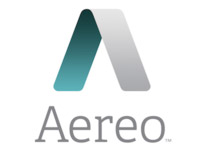There may yet be life in Aereo.

After the Supreme Court appeared to deliver a death blow to Aereo by ruling its service was unlawful, the company has latched onto a part of the court’s decision in an effort to stay alive.
The Supreme Court determined that Aereo flouted copyright rules by retransmitting programming without a license.
Aereo let users watch broadcast TV over the Internet for a monthly fee. Its rationale, according to CEO Chet Kanojia, was that its “cloud-based individual antenna would provide consumers with a convenient way to use an antenna to watch the live, free-to-air signals broadcast over public spectrum that belongs to them.”
Aereo’s goal was to create a legal way of providing consumers with more flexibility in how to watch TV.
Legal Lifeline
The company tried to use a loophole in the federal 1976 Copyright Act as legal justification for its service, but the Supreme Court disagreed. Yet there was some wording in the court’s written decision that gave Aereo a wisp of hope.
While Aereo staunchly argued during its legal battles that it was not a cable company, the Supreme Court said it was”substantially similar” to a cable company and had an “overwhelming likeness” to one, noting that “for all practical purposes” it was the same kind of business.
Aereo has latched onto that characterization. It argued in a letter to a lower court that under the same Copyright Act that condemned it, cable companies are entitled to seek a “compulsory license” for broadcasting content — and now it wishes to do so.
Joint Letter
A civil suit between Aereo and broadcasters, including ABC, was halted in the lower court pending the Supreme Court decision. The lower court ordered both parties to submit a joint letter laying out the next steps for the litigation following the high court’s ruling.
Aereo’s new position, as expressed in the letter: “The Supreme Court’s holding that Aereo is a cable system under the Copyright Act is significant because, as a cable system, Aereo is now entitled to the benefits of the copyright statutory license pursuant to the Copyright Act. Aereo is proceeding to file the necessary statements of account and royalty fees.”
The broadcasters objected to the new strategy, citing Aereo’s previous assertions that it was an equipment provider rather than a cable service.
R. David Hosp, a principal in Fish & Richardson, is lead attorney for Aereo. The joint letter was submitted by Bruce P. Keller, a partner in Debevoise & Plimpton, lead attorney for ABC.
The company opted for the approach since the Supreme Court “announced a new and different rule governing Aereo’s operations,” the letter states. Aereo called for an immediate decision on its eligibility for the license, arguing that its business was in jeopardy. Aereo paused operations temporarily following the Supreme Court decision.
Aereo declined to provide further details.
End of Rope?
“I think it’s their only move,” said Colin Dixon, founder and principal analyst at nScreenMedia.
“When the broadcasters won as they did, I thought it was a pyrrhic victory, because in the background was this 1976 law, which says that if you’re a cable company and you want to distribute local content, that there was a compulsory license that would be exacted on you but which would allow to you carry the local channels,” he told the E-Commerce Times.
“I think the law says it’s 10 percent of revenue,” Dixon continued. “It’s not a huge burden. It’s not like what the broadcasters are getting from the big cable companies, but I think it’s manageable. If [Aereo] were to increase prices slightly, I think they’d be able to cover it.”
Being eligible for the license “is almost a slam dunk,” he added. “They went into the case saying ‘we’re not a cable company,’ and the Supreme Court said ‘yes, you are.’ That’s the only test, I think. If they’re a cable company, they’re eligible under this act.”
Legal Battles
The company was embroiled in extensive legal battles with media companies after it declined to pay copyright fees to broadcasters for the retransmission of their broadcasts. Aereo maintained that it was doing nothing wrong in the eyes of the Copyright Act. Its business was based on using many micro antennas.
When a customer wanted to view a show, one of those antennas would receive the chosen signal and send it to a dedicated part of a video recorder. It then streamed that content to the user. As each user had an individual antenna and infrastructure for viewing content, Aereo argued that it created many individual performances of a recorded work and no public performances.
However, the Supreme Court ruled against Aereo, saying that the company gave public performances of the plaintiffs’ work and thus infringed the broadcasters’ rights.
“The television model is broken and needs to be reinvented,” telecom analyst Jeff Kagan told the E-Commerce Times. “I see Aereo continuing to chip away at that broken television model. I don’t think this is the end of the Aereo story. I think this is just the end of one chapter. Time for chapter two.”
New Regulations
If Aereo is reborn as a cable company, it will be subject to different regulations — “all of the restrictions and rules on cable companies,” nScreenMedia’s Dixon noted.
“I don’t think those are going to impair it from pursuing the business as broadly as it was before,” he added.
“One interesting wrinkle is that the Supreme Court did not say anything at all about the [digital video recorder] portion of Aereo’s service, so if they wanted to, I suppose they could continue to operate as a DVR-only service, with time-delay delivery,” Dixon pointed out. “I think it’s certainly worth paying the 10 percent fee to be able to provide the live channels as well. To continue to pursue the business as they are doing is the only way forward for them, I think.”
The new strategy, meanwhile, could have lasting ramifications for other companies attempting to enter the sector, as well as for broadcasters.
“I think what this has done is it has created a way forward for any Internet company that wants to include local broadcasts in their service,” Dixon suggested. “It has created the legal framework to do that.”
‘Bad News’ For Broadcasters
“I think this is actually extremely bad news for the broadcasters,” Dixon continued.
“What this essentially means is there are going to be loads of little Aereos cropping up — FilmOn is one example. Anybody that wants to use local broadcasts in a service, and that broadly conforms to Aereo’s structure, has a legal basis for doing so, and they can move forward,” he explained.
“I think the best option for the broadcasters right now is to start to work to make sure the ads are counted in the overall viewing numbers, so that they get full credit for those ads in negotiations for the sale of those ads,” Dixon said.
“I think that’s actually something they could have done at the very start with Aereo, but which they didn’t because they decided to litigate. Now, I think this is one of the essential things they’re going to have to work on. They’ll have to work with Nielsen to make sure now that those ads are counted,” he emphasized. “Otherwise, they truly do get no credit whatsoever — all they get is their share of the 10 percent compulsory license fee.”























































Social Media
See all Social Media